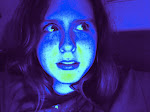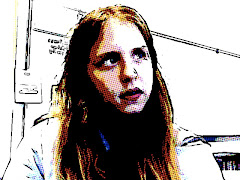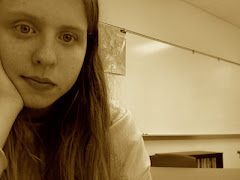These young and talented but unpublished writers know that they have something to say and are determined to say it. They're weird, whacky, and wonderful and their many varied voices make the Editorials section one of the hottest in the paper.
The problem is most of these writers are divas.
Divas and journalism just don't mix.
While writers can rock the Op/Ed page, the rest of the paper is about reporting. And the majority of writers I know make horrible reporters. They're used to spending lots of time, writing away, going wherever their imaginations taking them. They're used to being the source of their own creativity.
They're not used to walking up and down the hallways of the school looking for sources. They're not used to quoting other people in their works. And they're not used to writing in a totally objective tone. And since most young aspiring writers have spent their entire lives aspiring to be young writers, it's hard for them to shift gears into reporting.
This is how I did it:
1. Visualize.
This is going to sound stupid, but stay with me. Think about your mind as if it were a computer. What would its desktop look like? Once you've picked out a background, open up the Creative Writing program. It can look like whatever you want it to look like. Mine looks like the most minimalist word processor in the universe. Nothing but a blank page that I can fill with whatever I want.
Now close out of the writing program. And open up the Journalism Application. It's not related to the Creative Writing program at all. Made by a different company different color scheme. Journalism Application is more like a browser. You look at different sites that were put up by other people and collect the information you need.
I admit it's a dumb exercise. But it's crucial to make sure that you know journalism and creative writing are totally separate entities. Never mix business with pleasure. Never mix reporting with creating.
2. Drop the Snobbery.
Everybody's a snob sometimes, whether they realize it or not. The stereotypical snob is the pretty rich kid who sneers at anyone who's not as pretty and rich as he is. But snobbery is broad and pervasive. A kid who hangs out with junkies all the time but refuses to talk to jocks is still a snob. Just kind of an upside down one.
Snobs don't want anything to do with anyone outside of their ideas about what is normal and/or acceptable. Most people who show up to work on newspaper don't think of themselves as snobs. But it becomes evident when we're assigning stories that most people won't volunteer for anything that doesn't involve them or their friends.
But the best thing to do is to try reporting on things that are new to you. Instead of using newspaper as a chance to showcase your friends and all the awesome things they do, use it as a change to explore and investigate the world around at you. There is more going on at the high school than you think there is.
3. Think of yourself as a reporter.
Reporting is not a profession. It's a state of mind, a way of looking at the world. Keep telling yourself that you are a reporter.
Look around. Eavesdrop. Think about what's important to you and to the people around you. How can that be made into a story.






No comments:
Post a Comment